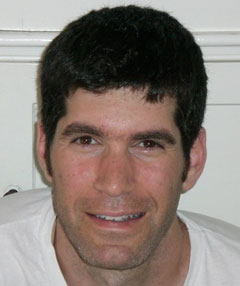Lightning Thief shows Greek mythology’s staying power
|
The Presidents Day weekend release of The Lightning Thief — the movie based on the first installment of the young-adult books Percy Jackson and the Olympians —signals a renewed interest in Greek mythology. Set in the present day, the best-selling series charts the adventures of 12-year-old Percy Jackson as he discovers he is the son of the Greek god Poseidon and, with his friends, embarks on a quest to prevent an apocalyptic war between the Greek gods Zeus, Poseidon and Hades.
But, according to Daniel Berman, associate professor in the Department of Greek and Roman Classics in Temple’s College of Liberal Arts, Greek mythology has always had its fans in modern America. |
 Daniel Berman
|
|
“The Greek myths, which are interwoven into the Percy Jackson series so well, have staying power, because the stories can still help us come to grips with conflicts in our lives, just as they did for the ancient Greeks,” said Berman. “There are so many situations that present us with more or less universal conflicts — things related to growing up or negotiating problems with the world at large or other people — and these are the types of conflicts that are often explored by the myths,” he said. According to Berman, it is a testament to the a nature of the stories themselves that young readers find them so engrossing at a time when fewer and fewer people are exposed to myths in school. And, said Berman, there is probably an element of escapism, as well: “Greek myths are similar in kids' minds to fantasy, in some ways, but this is a type of fantasy that has the legitimacy of a long tradition in literature and the arts — which parents and educators like, too!” Berman points out that one can find traces of the myths in our culture everywhere, including the relatively obvious reflections in car names, such as Honda Odyssey or Nissan Titan, or product names. Berman’s personal favorite is Ajax brand cleansers — named after a hero of the Trojan War known for his ability to get things done on the battlefield. But the myths influence our culture in deeper ways. The narrative patterns pervasive in modern stories mirror those in many Greek myths, said Berman. A great example is the sci-fi thriller District 9, a 2010 Academy Award nominee for Best Picture, he said. The hero of District 9, Wikus, endures a series of experiences that resemble those of Odysseus, the mythic hero of ancient Greece whose resourcefulness enabled him to capture Troy and endure nine years of wandering and adventures before reaching his home. Both Odysseus and Wikus become greater than regular men, with special abilities that derive from their contact with something foreign (in Wikus’ case, an alien substance). Even Wikus’ ambiguous death — an end similar to that of Hercules — is reminiscent of the Greek mythic tradition. “A foundling or otherwise disadvantaged protagonist is raised and eventually comes into his own, often into a kingship or other heroic status, or a son takes over the authority of his father only to be usurped by his own son in time,” said Berman. “These narrative patterns are familiar to us today.” |
|